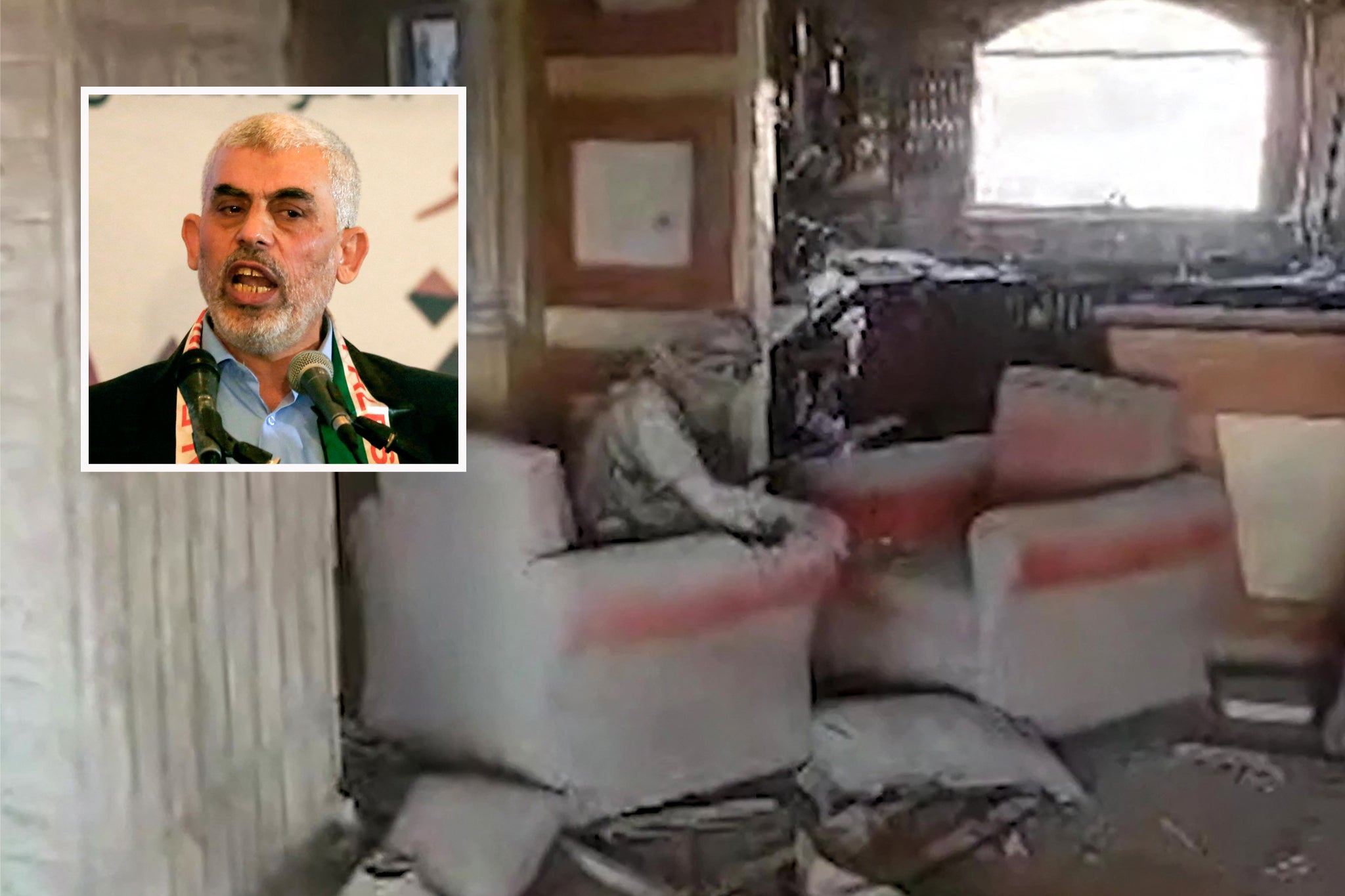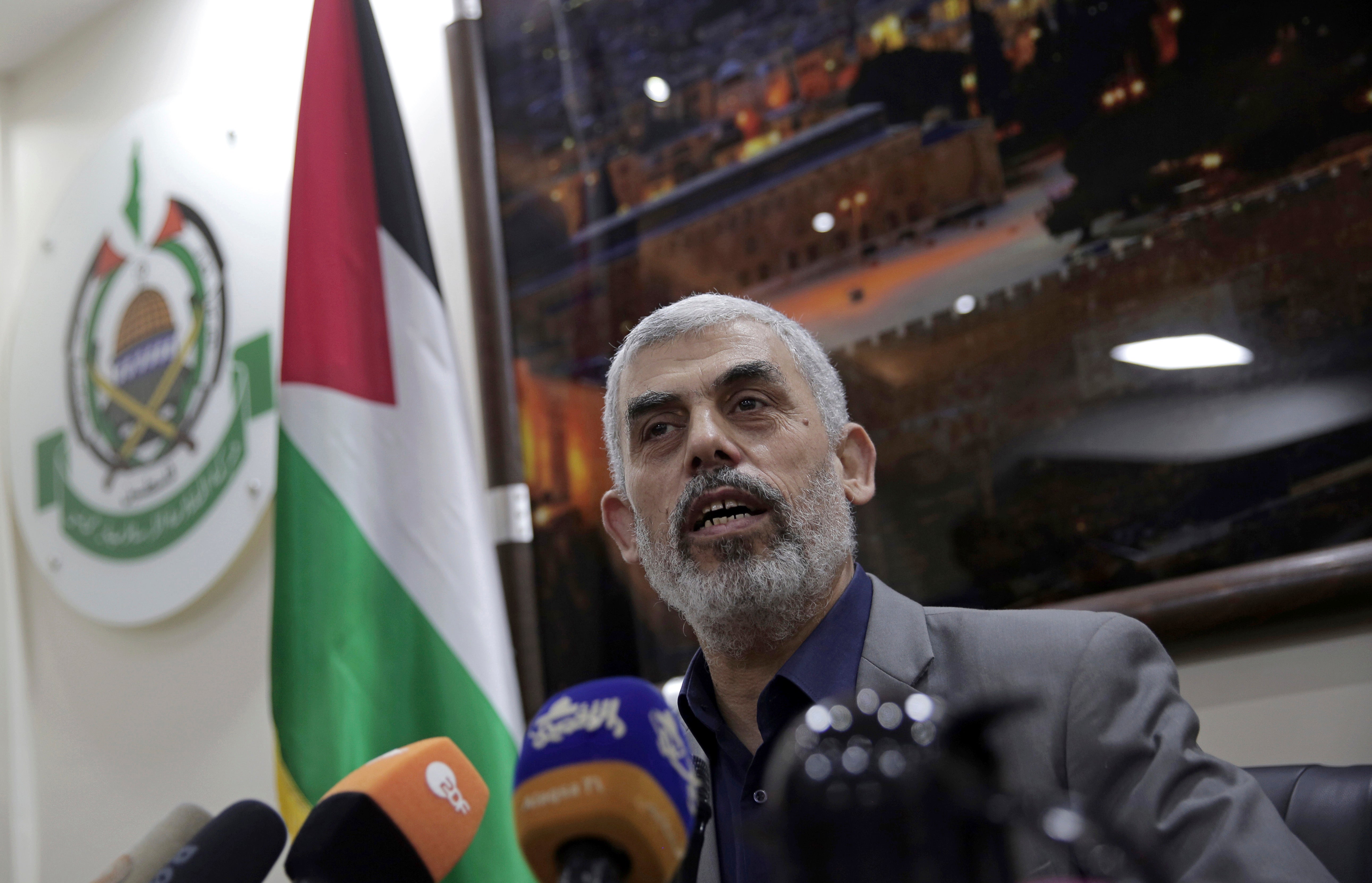After more than a year hunting Yahya Sinwar, the mastermind of the October 7 attacks that sparked Israel’s devastating war in Gaza, it was to be in a chance encounter during which the leader of Hamas was killed by Israeli troops.
The 62-year-old, chosen to lead Hamas after the Israeli assassination of Ismail Haniyeh in July, had been at the top of Israel’s hit list, and had been believed to be hiding in the vast network of tunnels built beneath Gaza over the past two decades, protected by bodyguards and what Israel has repeatedly called a “human shield of hostages”.
But as Israel’s relentless offensive continued to uncover more of the tunnels, Sinwar reportedly stopped using mobile phones and other communication equipment could have enabled Israeli intelligence to locate him.
Announcing his death on Thursday, Israeli officials said he was killed after leaving the tunnel network in southern Gaza while trying to escape to a safer location, at which point he was found by Israeli soldiers patrolling in the Tal Al-Sultan suburb of the southern city of Rafah.
He appeared to have been with just two other men when a unit described to the New York Times by Israeli defence officials as a group of trainee squad commanders chanced upon him while carrying out a routine operation on Wednesday.

Late on Wednesday in the southern city of Rafah, trainee Israeli troops from the 828th Battalion, a mixture of novice soldiers and reservists, spotted three suspicious figures moving from “home to home on the run”, the military said.
The soldiers fired on the group, apparently wounding one of them, who fled alone into a building. They sent in a small drone in pursuit.
On Thursday, the military released footage from that drone that showed Sinwar, badly wounded in the hand, sitting on a chair, his face covered in a scarf. The film shows him attempting to throw a stick at the drone, in a futile effort to knock it down.
“He tried to escape and our forces eliminated him,” Israeli military spokesperson Rear Admiral Daniel Hagari told reporters on Thursday.
According to accounts in Israeli media, tank shells were ordered to be fired at the building, collapsing it.
At that stage, however, Sinwar was still only identified as a fighter, with Israeli troops from the 450th Infantry Battalion ordered to storm the building for a closer look. They realised his resemblance to the Hamas leader, and finding him with a weapon, flak jacket, and 40,000 shekels (£8,250).
Fearing the body could be booby trapped with explosives, the troops initially removed part of his finger and sent it to Israel for testing, before bringing his body to Israel.
At the same time, grisly photos of Sinwar’s corpse were leaked online, forcing the military to issue a statement that they were investigating the possibility the Hamas leader was dead. Hours later, it was confirmed.
Israel had collected DNA information from Sinwar during the decades he spent incarcerated in Israeli prisons prior to his release in a prisoner swap in 2011. His DNA had been found prior to his death in a tunnel several hundred metres from where the bodies of six Israeli hostages were found six weeks, Mr Hagari said.

“The dozens of operations carried out by the IDF [Israeli military] and the ISA [Shin Bet, he Israel Security Agency] over the last year, and in recent weeks in the area where he was eliminated, restricted Yahya Sinwar’s operational movement as he was pursued by the forces and led to his elimination,” the Israeli military said in a statement.
While the families of some Israeli hostages called for a deal to end the war and free their loved ones following Sinwar’s death, senior officials appeared to signal a determination to continue the conflict.
“Today, evil took a heavy blow – the mission ahead of us is still unfinished,” prime minister Benjamin Netanyahu said, adding that Israel remained determined to free the hostages still in Gaza.
Yoav Gallant, Israel’s defence minister, said: “Sinwar died while beaten, persecuted and on the run – he didn’t die as a commander, but as someone who only cared for himself. This is a clear message to all of our enemies.”
News Summary:
- Yahya Sinwar: How a chance encounter led to the killing of Israel’s number one enemy
- Check all news and articles from the latest World updates.
- Please Subscribe us at Google News.


